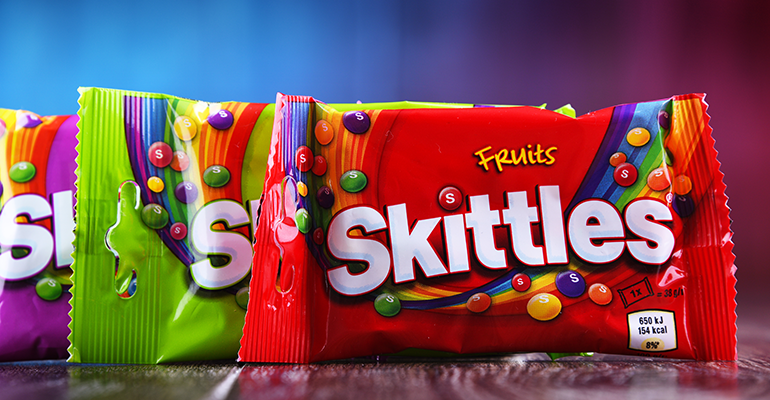News
Mars lawsuits claims Skittles are ‘unfit for human consumption’ over titanium dioxide content
5 Sep 2022
A battle over the safety of titanium dioxide is set to rage on as two US lawsuits filed against Mars Inc claim that its Skittles candy contains high levels of the are therefore ‘unfit for human consumption.’
The class action lawsuits, filed by consumers in California in July and Illinois in August, claim that Skittles contain unsafe levels of titanium dioxide which they argue to be a ‘known toxin’, therefore making the candy ‘unfit for human consumption.’
Jenile Thames filed the initial lawsuit in Oakland, California, claiming in court documents that Mars Inc “has long known of the health problems posed” by titanium dioxide – citing the fact that the company publicly stated that it was “committed to phasing out” titanium dioxide in February 2016, but has so far failed to do so.

A second proposed class action lawsuit was filed by consumer William Mignin III in an Illinois federal court on August 11, alleging violations of state and federal consumer laws and similarly claiming that Skittles are “unfit for human consumption” because they contain titanium dioxide.
What is titanium dioxide?
Titanium dioxide is a white powder made up of small particles that is used a food additive to whiten or brighten foods.
The ingredient has been under growing scrutiny from food safety agencies around the world in recent years, after analyses of food-grade titanium dioxide samples found a significant portion of particles may be within the nanoscale. These nanoparticles are suggested to have unique physical and chemical properties which may cause them to interact with living systems differently than larger materials with the same chemical composition. Indeed, some research studies have suggested that titanium dioxide could cause damage to cell DNA.
Is titanium dioxide banned?
Titanium dioxide has already been banned as a food additive in Europe after an expert panel of the European Food Safety Authority (EFSA) looked its safety while also taking titanium dioxide nanoparticles into account. The EFSA panel did not recognize any immediate health concern linked to titanium dioxide use as a food additive, but did cite ‘uncertainties’ the safety of nanoparticles as a factor in its conclusion that titanium dioxide could no longer be considered safe.
Manufacturers were given six months to comply with new rules before the EU-wide ban came into force at the start of 2022.
While the EU has effectively banned the use of titanium dioxide in foods, recent judgements by authorities in both the UK and Canada have both backed the safety of the ingredient. In July, a report from Health Canada said that its Food Directorate had conducted a comprehensive review of the available science, including evaluating new data that addressed uncertainties identified by the EFSA panel but were not available at the time of their review.
“The evidence also suggests that the toxicity of TiO2 particles may be reduced when eaten as part of the diet,” it noted at the time. “This is because proteins and other molecules in a person’s diet can bind to the TiO2 particles. This binding alters the physical and chemical properties of the particles, which influences how they interact with cells, tissues and organs.”
In the US, the Food and Drug Administration (FDA) considers titanium dioxide to be safe for use in foods, drugs and cosmetics. As a colour additive in foods, the FDA requires that titanium dioxide meet certain specifications, including that its cannot exceed 1% by weight of the food to which it’s added.
Skittles sued: Titanium dioxide under the spotlight again
According to the California lawsuit, Thames claims he would not have purchased the Skittles if he had known the candy contained titanium dioxide – adding that the ingredients listed the wrapper and packaging are difficult to read due to the contrast in colour between the font and wrapper.
A spokesperson for Mars, Inc, said: “While we do not comment on pending litigation, our use of titanium dioxide complies with FDA regulations.”
In a statement posted on its website, the Titanium Dioxide Manufacturers Association (TDMA) said it disagrees with claims made regarding titanium dioxide’s safety in candies, adding that the reports contain a number of inaccurate statements regarding the safety of titanium dioxide as a food additive.
